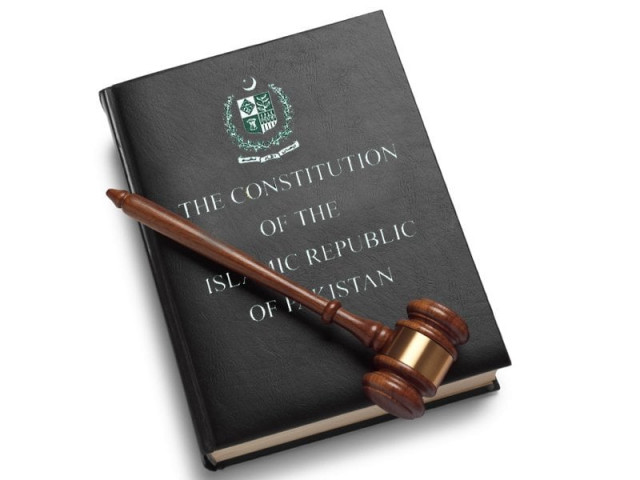Our Constitution is 48-year young now
Speaker Asad Qaiser says democratic forces have given sacrifices for supremacy of Constitution

Pakistan’s 1973 Constitution completed 48 years of existence on Saturday.
In roughly five decade journey, the supreme law of the country has guided the country’s law, political culture and the overall system.
On the occasion of the 48th Constitution Day of Pakistan which is commemorated across the country on April 10 every year, Speaker National Assembly Asad Qaiser said that the Constitution provides protection and equal rights to every citizen of the country.
“It is our foremost responsibility to uphold the sanctity of the Constitution. Supremacy of the Constitution and rule of law is essential for the development of the country,” the speaker said. “True spirit of the Constitution needs to be adopted to address the challenges being faced by the country.”
Read more: State of right to information in Pakistan
In a separate message, Deputy Speaker Qasim Suri said that supremacy of the Constitution can put the country on the path to development. He said that purpose of celebrating Constitution Day is to highlight its importance for future generations along with the commitment to uphold its supremacy.
While highlighting the historic significance of the Constitution, the speaker said that the members of the country’s first democratically-elected parliament had unanimously adopted the Constitution of Pakistan to let the country move on the path of democracy, peace and development.
“The real purpose of democracy is supremacy of the Constitution and the rule of law,” Qaiser said, adding that the democratic forces had always put their efforts and had given sacrifices for the restoration of democracy and supremacy of the Constitution in the country.
Speaker Asad Qaiser emphasised that it was the responsibility of the current political leadership to implement the Constitution and ensure that the federating units were given the powers enshrined in the Constitution.
He added that the incumbent government was striving to ensure the protection and rights of the people as enshrined in the Constitution. “This historic day gives us the opportunity to pledge to preserve the sanctity of the sacred document.”
Meanwhile, Pakistan Peoples Party (PPP) Secretary General Nayyar Bukhari termed the Constitution Day as a memorable day in the political and democratic history of the country because on this day gift of democracy was given to the nation.
The PPP leader said that the Constitution was a testament to the understanding and vision of the national democratic leader Zulfikar Ali Bhutto. “Under the Constitution, federalism, provincial autonomy and the right to coastal resources were recognised,” Bukhari said.
On April 10, 1973, he said, the citizens were given a constitutional guarantee of economic and human rights and the working peasants were given the right to form unions. He added that efforts would continue to ensure the dignity of parliament.
According to the National Assembly’s website, on 17th April 1972, an Interim Constitution was adopted by the National Assembly, which provided for a presidential form of government. Under this Constitution, it said, the National Assembly was not to be dissolved earlier than 14th August 1973. The Interim Constitution dealt with the distribution of powers between the Centre and the provinces.
The assembly also formed a Constitution Committee on April 17, 1972, to prepare the first draft for framing a Constitution. It said that the report of the committee was presented with a draft Constitution on December 31, 1972.
It was unanimously passed by the assembly in its session on April 10, 1973, and was authenticated by the president on April 12, 1973. The Constitution, called the Constitution of the Islamic Republic of Pakistan 1973, was promulgated on August 14, 1973.
On the same day, Zulfikar Ali Bhutto took oath as the Prime Minister, while Fazal Ilahi Chaudhry took oath as the President of Pakistan.
The 1973 Constitution provides for a parliamentary form of government, where the executive authority of the state vests in the prime minister. The president, according to the Constitution, is at the apex, representing the unity of the republic.



















COMMENTS
Comments are moderated and generally will be posted if they are on-topic and not abusive.
For more information, please see our Comments FAQ